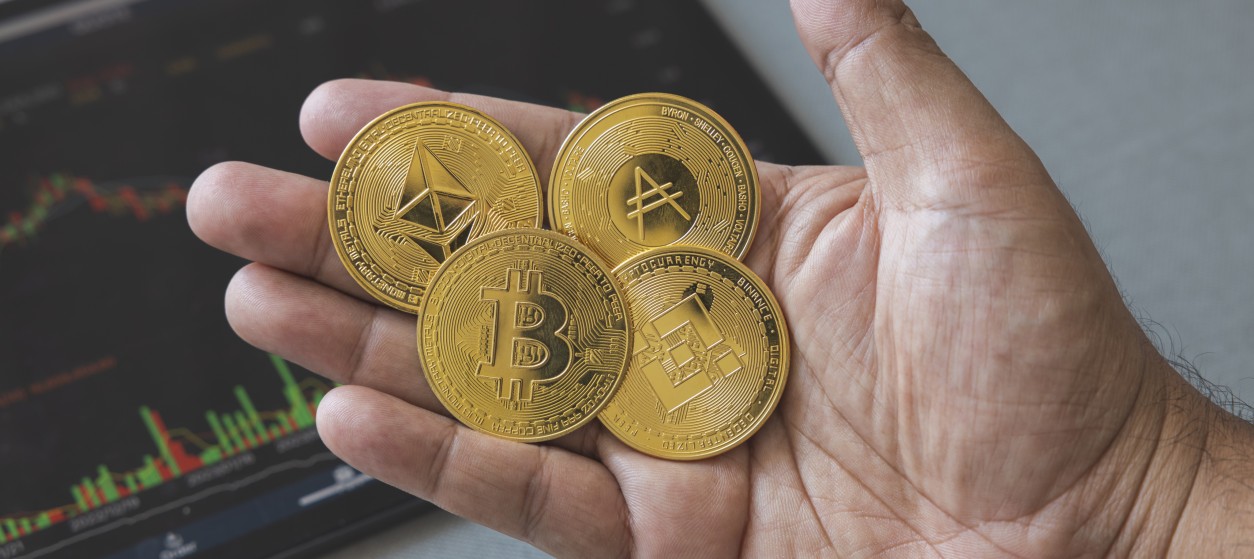The advent of cryptocurrencies such as BitCoin has enabled a radically new paradigm for financial transactions, which is fully decentralized and obviates the need for trust-third-parties (e.g., such as banks) in order to guarantee the validity of the transactions. At the same time, BitCoin has introduced a novel technology infrastructure, namely the blockchain, which facilitates the creation of a scalable distributed ledger of financial transactions. This ledger is the foundation for processing financial transactions between blockchain participants, while also certifying their validity based on open, transparent, consensus based mechanisms. The transparency and the scalability of blockchain has given rise to the use of this technology in a wide range of other applications beyond BitCoins and financial transactions. Blockchain has recently reached the very top of Garner’s famous hype cycle as a result of the emergence of a wave of novel blockchain products and services. In following paragraphs we have selected and presented five of them, spanning different industries and applications such as supply chain management, enterprise collaboration, management of service level agreements and more.
Provenance
Provenance exploits blockchain technology to provide full traceability details about physical products. It uses the distributed ledger as a means of logging all supply chain transactions associated with physical products. In this way, Provenance is able to recall and present the “digital history” of a given product hence enabling consumers and retailers to trace and verify the product’s origin, attributes and ownership.
Large scale traceability applications have been around for over a decade since the creation of global RFID (Radio Frequency Identification) infrastructures (e.g., EPC Global / GS1 www.gs1.org/epcglobal), which enabled tracking and tracing of individual products worldwide, along with counterfeiting services. Provenance exploits the blockchain in order to offer more scalable, decentralized and open solutions.
Two of the most recent deployments of the Provenance system were for the verification of the identity of the products of a small pickle producer and the traceability of tuna supply chains in Indonesia.
Modum
Similar to Provenance, Modum is an application of blockchain in the supply chain industry. However, Modum is focused on servicing pharmaceutical chains, which is a complex task and is associated with several challenges in terms of safety, cost, regulatory compliance and more. The company provides the means for monitoring the temperature of pharmaceuticals parcels during all shipments in order to ensure regulatory compliance and drug safety. To this end, all shipment data are recorded in a distributed ledger via blockchain technology. In Modum’s case, the blockchain facilitates scalability, data immutability and public accessibility, while at the same time contributing to cost reduction.
The company concluded a first round of pilot deployments of its solution in 2016 with promising results.
Colony
Colony aims at using the blockchain as a means of effective collaboration between distributed teams. It uses the blockchain infrastructure to facilitate cooperation between suppliers of services and knowledge, while at the same time reducing administrative overheads associated with the coordination. Moreover, it exploits blockchain mechanisms for increasing trust and providing incentives to participants of a team.
In practice, Colony facilitates the development of on-line collaborative structures such as companies, which are conveniently called colonies. Colonies harness the wisdom of the crowd (i.e. their participants) in order to make sure that things get done at the right time, by the right people. Each participant gains token for completing work, which boosts a meritocracy scheme as tokens provide a good indication of capacity and skill. Moreover, tokens can be traded on the open market for cash, while they can also be used to claim ownership of part of the colony: The more tokens you hold, the more of the colony you own. The blockchain also empowers democratic decisions: while all participants contribute to decisions, participants with more expertise have more influence on the final decisions.
Colony is a radically new collaboration concept, which is already giving rise to hackathons and startup competitions and is a novel way for exploiting this concept.
Enigma
Enigma is a decentralized privacy preservation platform based on blockchain technology. It provides the means for storing, sharing and analyzing private data without disclosing the data to any party. Enigma’s technology is based on secure multi-party computations, which are empowered by blockchain technology. Based on Enigma technology data remains encrypted and resilient even when used in the scope of business intelligence and Big Data analytics functionalities. Envisaged practical application of Enigma include:
- Effective fraud detection, as a result of Enigma’s ability to exploit cross-organization and cross-border data without compromising their privacy.
- Privacy-preserving smart contracts in other blockchain applications, through adding the data privacy dimension to the transparency of smart contracts.
Enigma has been founded and developed by engineers of the famous Massachusetts Institute of Technology (MIT).
Ethereum
Ethereum is a smart contracts platform i.e. a platform for applications that run exactly as programmed without any possibility of downtime, censorship, fraud or third party interference. The platform uses the blockchain as a means of a transparent and fully decentralized way for creating markets, storing debt registries, managing movement of funds and more. Contrary to some of the previously presented products, Etherem is a smart contracts infrastructure, which can empower a wide range of applications where such contracts are applicable. Some of the already supported use cases include:
- Gold Investment: Ethereum blockchain contracts have been customized to enable linking of Ethereum tokens to gold tokens backed by the Singaporean gold vault. The process of redemption to physical gold can take place at any time.
- Crowdfunding: The platform empowers smart contracts that can support crowd-funding campaigns, similar to Kickstarter.
Smart contracts can also be developed in other application domains such as internet-of-things (where contracts between things can be established), social networks (where contracts can regulate privacy and censorship), transparent and fair lotteries (where contracts between the players and the lottery operator can be executed) and many more. The opportunities are endless, especially as more and more innovators come up with new ideas for leveraging the openness, the transparency and the security of the blockchain.
As evident from the above examples, blockchain is nowadays an enabler of fantastic ideas that change existing paradigms and lead to a more transparent and trustful digital world. More and more companies are discovering merit in the blockchain, either from an innovator’s or from a user’s standpoint. However, there is also hype around blockchain and the extent to which this technology will change our lives remains to be seen.










